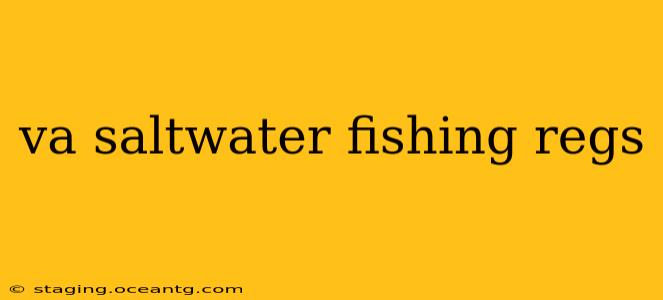Virginia boasts a diverse coastline teeming with saltwater fish, making it a popular destination for anglers. However, responsible fishing requires understanding and adhering to the state's regulations. This comprehensive guide covers Virginia's saltwater fishing regulations, ensuring you can enjoy your fishing trip while respecting marine life and conservation efforts.
What are the main types of fishing licenses required in Virginia?
Virginia requires a saltwater fishing license for residents and non-residents aged 16 and older who fish in saltwater. There are different license types available, including annual, three-day, and lifetime licenses. Specific requirements vary based on residency status and the type of fishing you intend to undertake. For example, a commercial license is needed for selling your catch, whereas recreational licenses are sufficient for personal use. It's crucial to check the Virginia Department of Wildlife Resources (DWR) website for the most up-to-date information on licensing and fees as these can change.
What are the size and creel limits for popular saltwater fish in Virginia?
Size and creel limits vary significantly depending on the species of fish. For instance, the minimum size limit for striped bass (rockfish) can fluctuate yearly due to conservation efforts, and the creel limit (number of fish you can keep) often changes as well. Similarly, red drum (redfish) have specific size and creel limits intended to protect the spawning population. Other popular species like flounder, speckled trout, and black drum also have their respective regulations. Always consult the official DWR regulations guide, which is typically available online and updated annually, for the most accurate and current information on size and creel limits for your target species. Ignoring these limits can result in substantial fines.
Are there specific seasons for fishing certain species in Virginia's saltwater?
Yes, many saltwater fish species in Virginia have specific open and closed seasons. These closures are designed to protect spawning populations and ensure sustainable fishing practices. For example, there might be a closed season for a particular species during its breeding period to allow for successful reproduction. These seasons can vary significantly depending on the species, and often change from year to year based on stock assessments. Therefore, always check the DWR's official regulations before heading out on a fishing trip. Failing to observe seasonal closures can lead to significant penalties.
What are the gear restrictions for saltwater fishing in Virginia?
Virginia's saltwater fishing regulations often include gear restrictions to protect certain fish species. These might include limitations on the type of fishing gear allowed (e.g., restrictions on certain types of nets or traps), or the number of lines one can use simultaneously. Specific restrictions also relate to the use of certain bait types. Understanding and adhering to these regulations is vital for responsible and legal fishing. Checking the DWR website for current gear restrictions is essential to ensure compliance and avoid potential legal issues.
What are the consequences of violating Virginia's saltwater fishing regulations?
Violating Virginia's saltwater fishing regulations can result in significant consequences, including hefty fines, suspension or revocation of fishing licenses, and even potential legal action in severe cases. The penalties can vary depending on the severity and nature of the violation. Therefore, it's crucial to familiarize yourself thoroughly with the current regulations and fish responsibly. Respecting these rules is vital for the sustainability of Virginia's marine resources and the enjoyment of future fishing opportunities.
Disclaimer: This information is for general guidance only. Always refer to the official Virginia Department of Wildlife Resources (DWR) website for the most up-to-date and accurate information on saltwater fishing regulations. Regulations are subject to change, and it's your responsibility to be informed before fishing. This information is not a substitute for legal advice.
